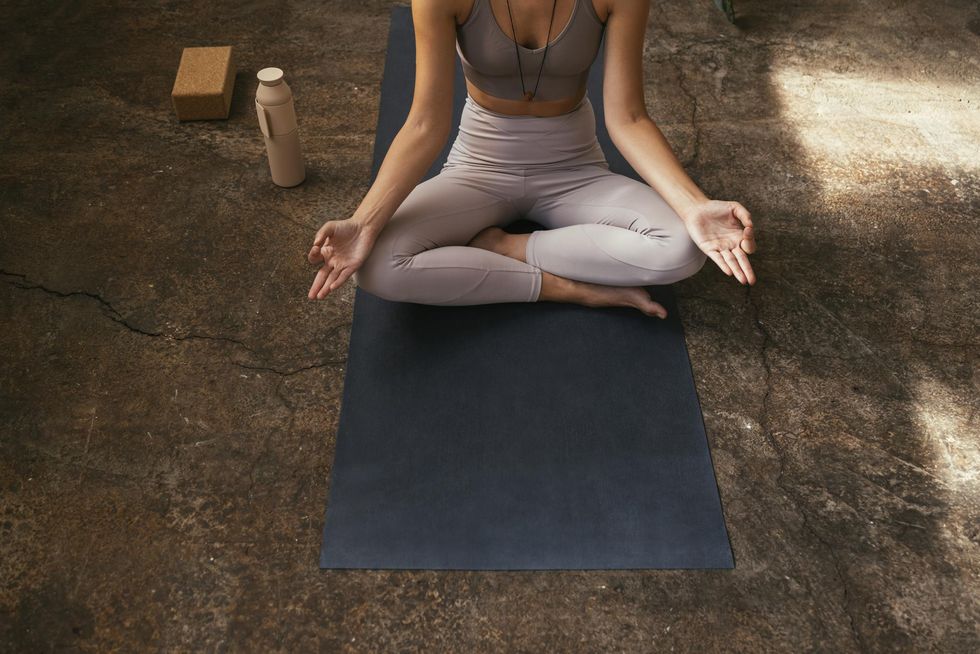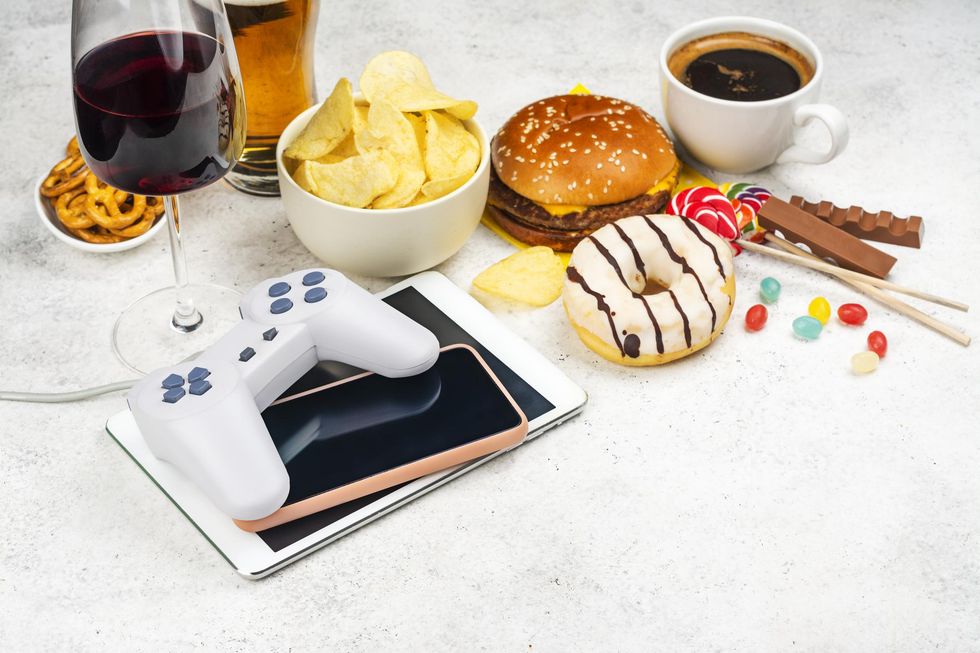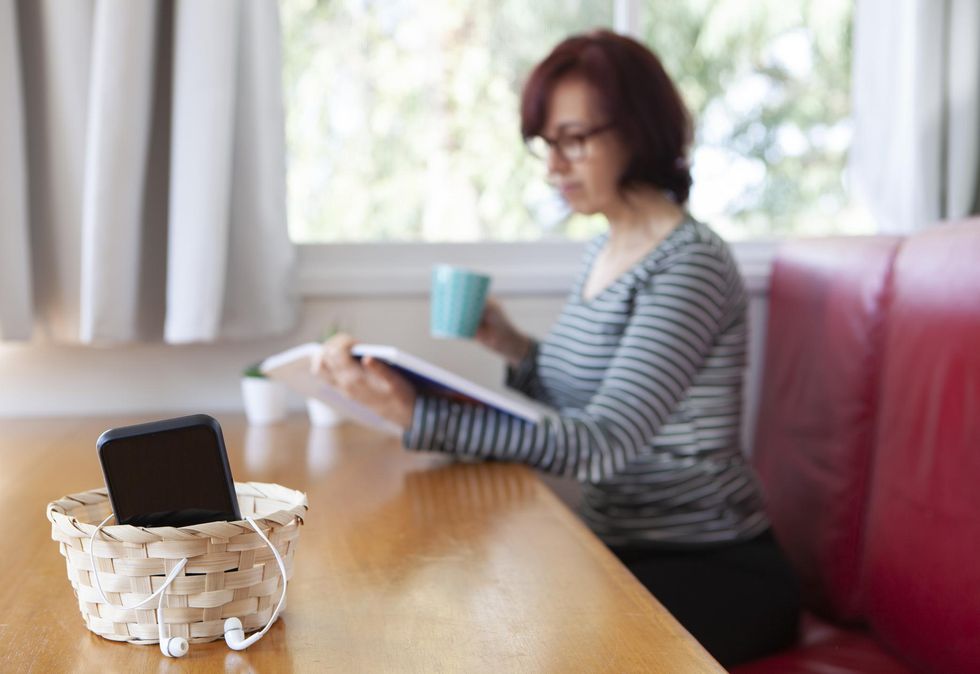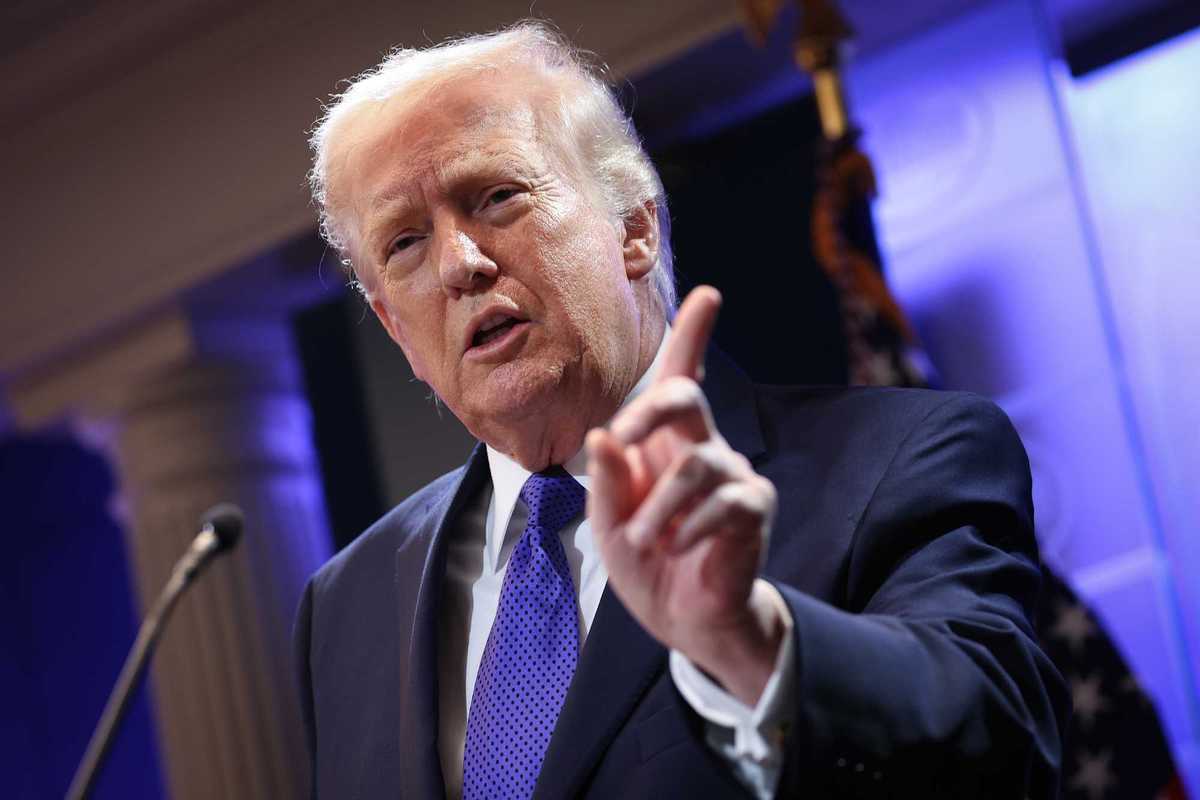Dopamine is a neurochemical believed to be connected to motivation, reward and pleasure. But now, people are taking breaks from life's little joys to "reset their minds."
When we receive a phone notification, our brain floods with dopamine as it recognises that ping as a reward-inducing cue. Subsequently, we feel motivated to pick up our devices and check.
The concept of a dopamine detox is to feel less dominated by dopamine-producing activities and decrease reward sensitivity, especially with "pleasures" that provide instant gratification.
Daniel Epstein (LPC, LMHC, RRT-P), Director of Client Care at the Berman Center told indy100: "Detoxification means riding our bodies of a toxin", which essentially means that while the phrasing of a 'dopamine detox' is catchy, it's also pretty inaccurate.
"We're certainly not trying to rid our brains of dopamine," he said, though he believes "depriving ourselves of certain behaviours can be a wonderful and restorative thing when done well."
Some people identify a specific pleasure – such as sugar, sex, social media or porn – domineering their lives and choose to remove it for a set amount of time. Or, in some cases, indefinitely.
Epstein recommends replacement behaviours. These consist of activities such as "going for a walk, exercising, calling grandma, working on that project you've been procrastinating - something positive that generates feelings of satisfaction or accomplishment."

Sign up to our free Indy100 weekly newsletter
While this is a healthy way of detaching from vices that have become detrimental to a person's well-being, people should treat substance abuse separately, as going "cold turkey" can be fatal. Epstein strongly recommends seeking qualified medical guidance for anyone "drinking a large volume of alcohol for an extended period of time."
In terms of cutting back from social media for a set amount of time, it would simply boil down to having "an indirect effect like missing out on an invitation that ultimately upsets a friend, or something unintended."
"There is no 'one size fits all' for clinical detoxes, so if you're looking to break a habit, it's best to do this with a qualified professional. You can start by modifying the behaviour, versus eliminating it such as not using a cell phone within an hour before bedtime."

Many TikTokers have taken matters into their own hands and cut out pretty much all of life's joys – some for as long as 30 days. After hearing an incredible amount of success stories – ironically, on social media – I thought I'd give it a go.
I wanted to go hard or go home.
I cut out everything that involved screentime, such as using my phone and watching TV, I hid away my beloved AirPods, and avoided caffeine, sugar, alcohol and junk food with the optimistic aim of lasting a week.
Emphasis on optimistic.
I dropped messages in my WhatsApp chats, alerting friends and family of my absence as though I was heading out on a Robinson Crusoe mission. One friend with little faith told me they'd "speak to me again in three hours."
Long story short: I lasted a mere 48 hours – 16 of those mundane hours were spent sleeping. These soon became the most exciting minutes of the detox.
It wasn't as bad as anticipated – but it was clearly bad enough to crack so soon.
The days felt slower, which was bittersweet. On the one hand, it allowed me to make room for life-admin tasks that were long overdue. But once they were done, I resorted to doodling Superman S' for an entire hour or taking a walk.
There was a strange sense of FOMO and feeling out of the loop, which made me realise how much I am online. As someone who spends a shameful amount of time on their phone, I thought that would be the reason for my defeat.
But, it was music – and caffeine.
Maybe if I did stick it out, I'd experience a huge spiritual awakening – but who knows?

One TikTok user, who had a much better success rate than myself, enjoyed the detox so much that she extended it by a week.
Anastasia (@anastasiaoceano) was inspired by her online community and viewed the practice as "a way of resetting the brain."
Through cutting out Instagram, TikTok, TV and keeping junk food and alcohol at bay, Anastasia set out to "reconnect to source, realign with purpose and stop internal chatter/doubt."
"I was only supposed to do it for a week, but I loved it so much I kept going to two weeks," she said.
Through her dopamine detox, Anastasia said she immediately felt the benefits:
- A clearer state of mind- able to find happiness in the smallest of things
- My sleep schedule fixed itself automatically
- I had so much free time to learn new things
- It made me realise how I had been viewing myself through the lens of comparison
- It gave me time to reconnect to my inner power and invited MANY synchronicities into my life
The only downfall con for Anastasia was not being able "to connect and feel inspired by [her] online community."
Despite the success stories, there is no scientific evidence to support this method and evidence of any benefits are anecdotal. However, even if the benefits are akin to a placebo benefit, "that's great they feel a benefit," Epstein said.
"To say 'this did that' in science, we would need some quality research. The old saying is: The plural of anecdote is not data."
Taking back control is illuminated in the sense of loss of control associated with addiction.
"If someone intends to have one drink but has 10, they will feel as if things are out of control because even though they are physically controlling the action of drinking, their brain is pursuing more of what they did not want to when sober and clear-minded," Epstein added.
"If you think you may be dealing with a mental health or addictive issue, be sure to work with a qualified professional. Otherwise, set a clear, measurable, and reasonable goal. Behaviour can be increased, decreased, initiated, or eliminated."
Have your say in our news democracy. Click the upvote icon at the top of the page to help raise this article through the indy100 rankings.














